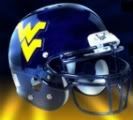Post by elp525 on Jun 19, 2010 7:46:38 GMT -5
June 18, 2010
By Dave Hickman
Staff writer
MORGANTOWN - Just so you understand how things get completely misconstrued and blown out of proportion in this age of the instant, 24-hour news cycle, here's a perfect example. It's a fresh one, too, and quite topical.
On Monday, during the shindig that served as Oliver Luck's introduction as West Virginia's next athletic director, the relative newbie to the Big East mentioned, almost in passing, that he might be able to get a better understanding of what the league's issues were later in the week. That, he said, was when he understood that there might be a teleconference involving the Big East's athletic directors and/or presidents, the agenda for which he presumed would include discussion of the league's place in what appeared to be the ticking time bomb of conference expansion.
No one thought to grill Luck on the particulars of such a call, in great part because he seemed to know little about it.
Someone out there in cyberspace, though - a blogger at the Orlando Sentinel - picked up the rather innocuous quote from WVU's student newspaper and suggested that the alleged conference call might be a significant event. One of those maybe/maybe not deals.
Soon it became a fact of cyberspace that such a call would take place.
Soon after that, when a Florida TV station reported that the league was ready to invite Central Florida and Memphis, the still-impending (not to mention unconfirmed) call became a seminal event, perhaps one that would shape the Big East for years to come. Outlets in Florida and North Carolina reported such a call as fact and even speculated that the sole purpose of it was to officially agree to make such an offer to the two schools.
Now remember, that would be the call that West Virginia's yet-to-take-office athletic director mentioned in passing that he thought might take place, but knew of no particulars.
Sheesh.
Of course there was no call, at least among the full membership of the Big East, be it athletic directors or presidents. There was never one scheduled. Anyone with access to a telephone might have discovered that in a matter of minutes and therefore dismissed Luck's in-passing comment as a non-story. That's exactly what this newspaper did.
Not that Oliver Luck was wrong. He wasn't. There are calls being held all the time. Perhaps he was even in on one of them this week.
But they are not events and are, in fact, pretty much a matter of routine - exercises in keeping the membership informed. The league isn't exactly being proactive in regard to jumping into expansion, but it is performing due diligence where its own future is concerned.
What is noteworthy is that the primary step toward that, it seems, is the assignment of a six-person team of athletic directors charged with performing an assessment of the league itself. Its goals, among others, are to assess the conference's strengths and weaknesses, survey the college athletics landscape and position the Big East in the best possible place.
Not necessarily for expansion, but for the next round of television negotiations.
"Let's face it, the bottom line is that the last time our television contracts came up for renewal, it was a bad time,'' said Ed Pastilong, West Virginia's outgoing athletic director. "That was no one's fault. It was just a fact. The timing was bad.''
Indeed, while it certainly can be argued that the Big East has its faults (small membership on the football side and little star power being among the most notable), timing was also a major contributor to the ridiculously small (by current standards and in relation to other conferences) amount of money the league is drawing from TV contracts signed in 2006. Among the goals of the assessment team is to do as much as it can to make certain the conference is better positioned when the current pacts expire after the 2013-14 school year. Negotiations for the next contract figure to begin in earnest in two years, maybe three, assuming shifts in conference membership don't invalidate the current pact before then.
That's also where Paul Tagliabue comes in. The former NFL commissioner is working to help position Big East for those negotiations and exploring all options.
"He's been on a few of our calls, and just listening to some of his thoughts and ideas is invaluable,'' Pastilong said. "I think he's going to be a tremendous help to the league.''
Tagliabue isn't the only one working with the committee. The Big East's office staff is involved, as is heavy hitter Kevin O'Malley, the sports business consultant who is on retainer with the league and has in the past helped with such matters as TV deals, the league's BCS status and the search for a new commissioner.
It must be assumed that one of the more specific issues the group is charged with assessing is the viability of what has become the hot-button issue of late, the possibility of developing an in-house network along the lines of the Big Ten Network - how it might be accomplished and if it stands to be successful.
Of course, the truth is the formation of the assessment team isn't exactly earth-shaking news. The fact is that the league often asks small groups of ADs or other member representatives to study or work on issues, simply because those things need to be done, and asking 16 ADs or school reps to do so becomes rather unwieldy.
Still, the formation of this particular study group is significant because what it is assessing is the conference's very future. From time to time that group likes to keep everyone else informed.
Thus the occasional conference calls, which much to the disappointment of so many out there aren't always about what they would make them out to be.
By Dave Hickman
Staff writer
MORGANTOWN - Just so you understand how things get completely misconstrued and blown out of proportion in this age of the instant, 24-hour news cycle, here's a perfect example. It's a fresh one, too, and quite topical.
On Monday, during the shindig that served as Oliver Luck's introduction as West Virginia's next athletic director, the relative newbie to the Big East mentioned, almost in passing, that he might be able to get a better understanding of what the league's issues were later in the week. That, he said, was when he understood that there might be a teleconference involving the Big East's athletic directors and/or presidents, the agenda for which he presumed would include discussion of the league's place in what appeared to be the ticking time bomb of conference expansion.
No one thought to grill Luck on the particulars of such a call, in great part because he seemed to know little about it.
Someone out there in cyberspace, though - a blogger at the Orlando Sentinel - picked up the rather innocuous quote from WVU's student newspaper and suggested that the alleged conference call might be a significant event. One of those maybe/maybe not deals.
Soon it became a fact of cyberspace that such a call would take place.
Soon after that, when a Florida TV station reported that the league was ready to invite Central Florida and Memphis, the still-impending (not to mention unconfirmed) call became a seminal event, perhaps one that would shape the Big East for years to come. Outlets in Florida and North Carolina reported such a call as fact and even speculated that the sole purpose of it was to officially agree to make such an offer to the two schools.
Now remember, that would be the call that West Virginia's yet-to-take-office athletic director mentioned in passing that he thought might take place, but knew of no particulars.
Sheesh.
Of course there was no call, at least among the full membership of the Big East, be it athletic directors or presidents. There was never one scheduled. Anyone with access to a telephone might have discovered that in a matter of minutes and therefore dismissed Luck's in-passing comment as a non-story. That's exactly what this newspaper did.
Not that Oliver Luck was wrong. He wasn't. There are calls being held all the time. Perhaps he was even in on one of them this week.
But they are not events and are, in fact, pretty much a matter of routine - exercises in keeping the membership informed. The league isn't exactly being proactive in regard to jumping into expansion, but it is performing due diligence where its own future is concerned.
What is noteworthy is that the primary step toward that, it seems, is the assignment of a six-person team of athletic directors charged with performing an assessment of the league itself. Its goals, among others, are to assess the conference's strengths and weaknesses, survey the college athletics landscape and position the Big East in the best possible place.
Not necessarily for expansion, but for the next round of television negotiations.
"Let's face it, the bottom line is that the last time our television contracts came up for renewal, it was a bad time,'' said Ed Pastilong, West Virginia's outgoing athletic director. "That was no one's fault. It was just a fact. The timing was bad.''
Indeed, while it certainly can be argued that the Big East has its faults (small membership on the football side and little star power being among the most notable), timing was also a major contributor to the ridiculously small (by current standards and in relation to other conferences) amount of money the league is drawing from TV contracts signed in 2006. Among the goals of the assessment team is to do as much as it can to make certain the conference is better positioned when the current pacts expire after the 2013-14 school year. Negotiations for the next contract figure to begin in earnest in two years, maybe three, assuming shifts in conference membership don't invalidate the current pact before then.
That's also where Paul Tagliabue comes in. The former NFL commissioner is working to help position Big East for those negotiations and exploring all options.
"He's been on a few of our calls, and just listening to some of his thoughts and ideas is invaluable,'' Pastilong said. "I think he's going to be a tremendous help to the league.''
Tagliabue isn't the only one working with the committee. The Big East's office staff is involved, as is heavy hitter Kevin O'Malley, the sports business consultant who is on retainer with the league and has in the past helped with such matters as TV deals, the league's BCS status and the search for a new commissioner.
It must be assumed that one of the more specific issues the group is charged with assessing is the viability of what has become the hot-button issue of late, the possibility of developing an in-house network along the lines of the Big Ten Network - how it might be accomplished and if it stands to be successful.
Of course, the truth is the formation of the assessment team isn't exactly earth-shaking news. The fact is that the league often asks small groups of ADs or other member representatives to study or work on issues, simply because those things need to be done, and asking 16 ADs or school reps to do so becomes rather unwieldy.
Still, the formation of this particular study group is significant because what it is assessing is the conference's very future. From time to time that group likes to keep everyone else informed.
Thus the occasional conference calls, which much to the disappointment of so many out there aren't always about what they would make them out to be.





